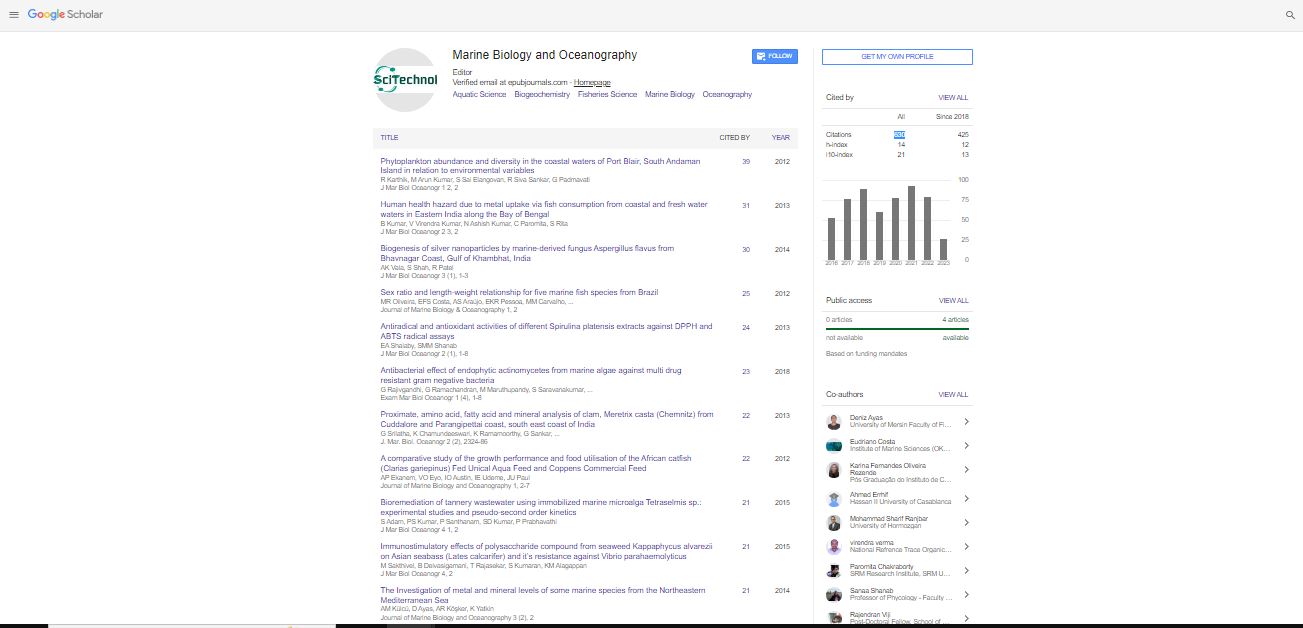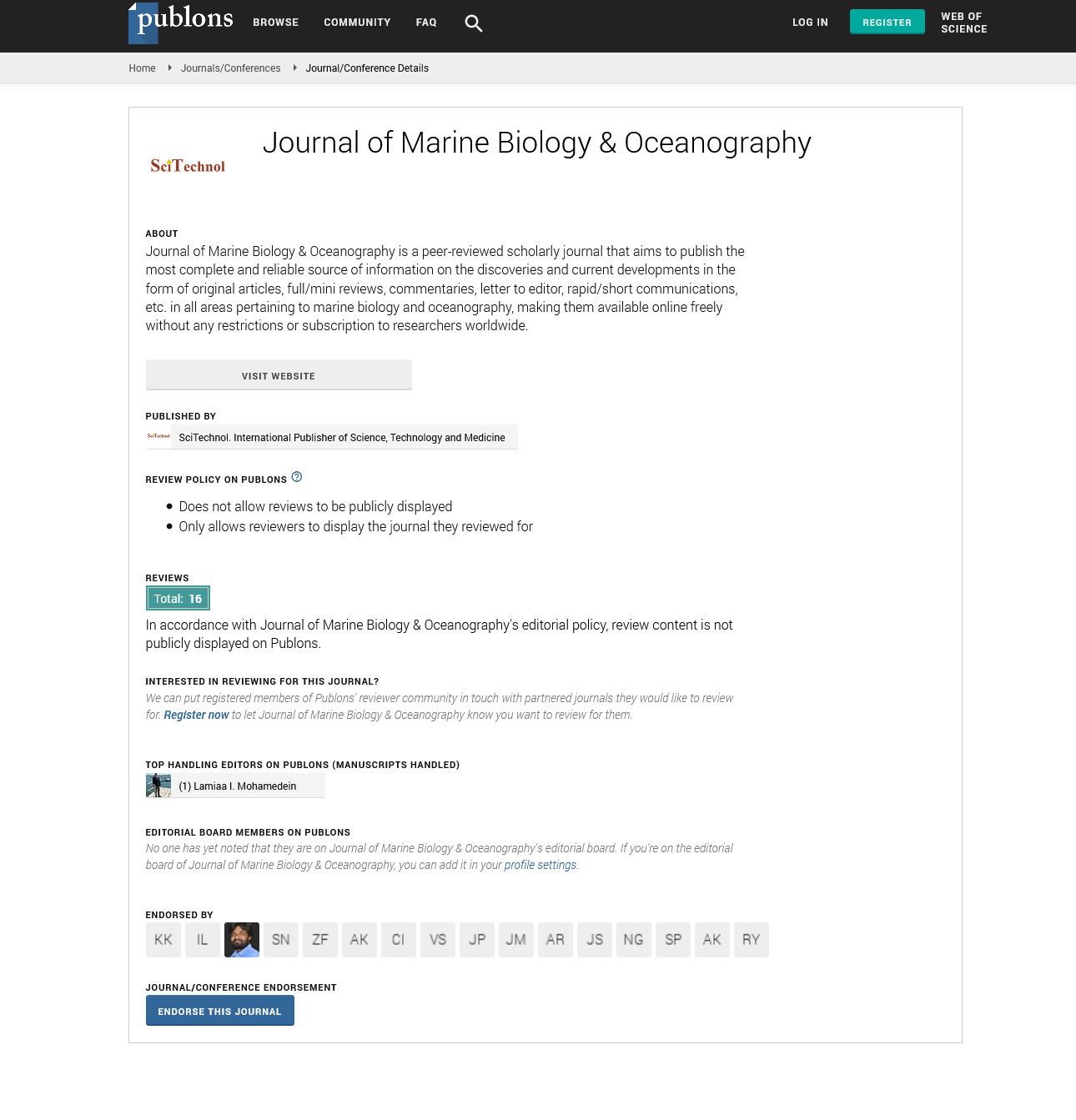Research Article, J Mar Biol Oceanogr Vol: 2 Issue: 4
A Report on the Micro-Phytoplankton Size Range, Biovolume, Biomass and Geometric Shape in the Post �Aila� (Severe Cyclone) Waters of Estuarine Sundarban-Bay of Bengal, India
| Abhishek Mukherjee1, Subhajit Das1, Minati De2, Tushar Kanti Maiti3 and Tarun Kumar De1* | |
| 1Department of Marine Science, Calcutta University, Kolkata, India | |
| 2Maniktala Girls’ Siksha Bhavan, Kolkata, India | |
| 3Department of Botany, Burdwan University, Burdwan, India | |
| Corresponding author : Tarun Kumar De Department of Marine Science, Calcutta University, 35, B.C. Road, Kolkata-70001 E-mail: tarunde@yahoo.co.in |
|
| Received: August 14, 2013 Accepted: November 02, 2013 Published: November 08, 2013 | |
| Citation: Abhishek M, Subhajit D, Minati D, Tushar Kanti M, Tarun Kumar D (2013) A Report on the Micro-Phytoplankton Size Range, Biovolume, Biomass and Geometric Shape in the Post “AILA” (Severe Cyclone) Waters of Estuarine Sundarban-Bay of Bengal, India. J Mar Biol Oceanogr 2:4. doi:10.4172/2324-8661.1000118 |
Abstract
A Report on the Micro-Phytoplankton Size Range, Biovolume, Biomass and Geometric Shape in the Post “Aila” (Severe Cyclone) Waters of Estuarine Sundarban-Bay of Bengal, India
The Sundarban was rampaged by a severe tropical super cyclone designated as BOB 02 or more popularly as “Aila” on 25th May of 2009 and it changed the face of the deltaic region forever. The present study commenced on March, 2010 and continued till February of 2013 to capture the detailed effect of the physicochemical and meteorological parameters on the existing phytoplankton community. In order to predict the changes, if any, in metabolism of the microphytoplanktons, biovolume and biomass were selected as indices. The Hooghly estuary was chosen as the study site since it is the largest estuary of the River Ganges and should reflect the scenario better being a tropical well mixed estuary. The study revealed higher proportion of diatoms, dinoflagellates and Cyanophyceae than before.
 Spanish
Spanish  Chinese
Chinese  Russian
Russian  German
German  French
French  Japanese
Japanese  Portuguese
Portuguese  Hindi
Hindi 
